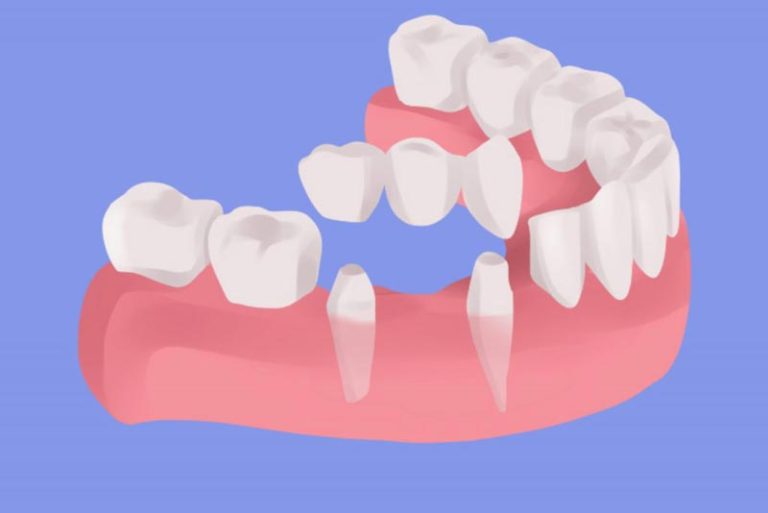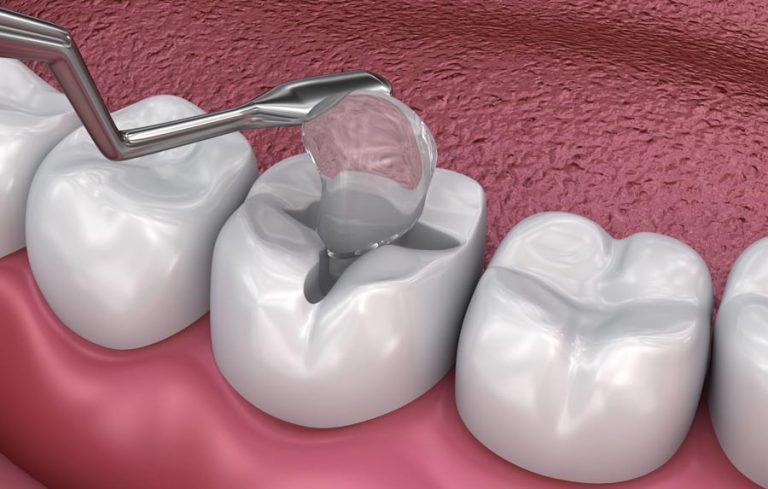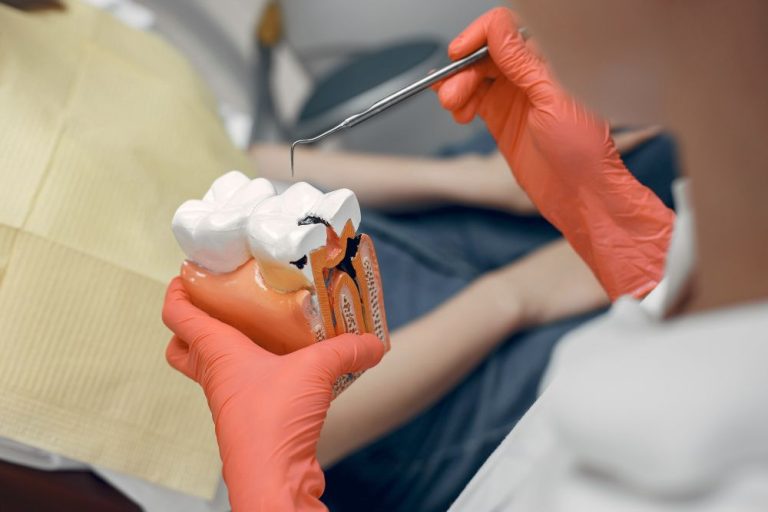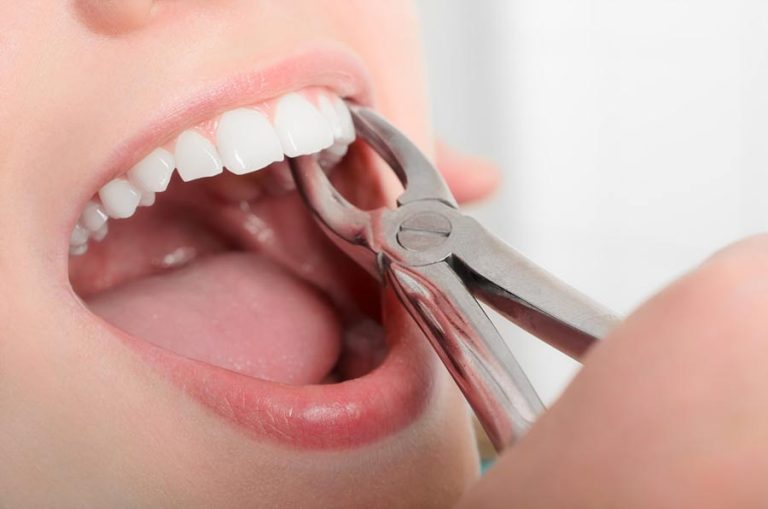Tooth decay or cavities are signs that the hard enamel of the tooth melts away to a particular level and allows for bacteria to build up on the teeth. If left untreated, it can cause gum problems that range from discomfort to losing teeth and a direct hit on your overall health. Preventive care is the best medicine here at Walk-in Family Dental. Here, we will seek to bring you the tips, necessary information, and professional advice that allows us to ensure both ourselves and our families are not brushing aside opportunities to prevent tooth decay.
How Does Tooth Decay Occur?
Plaque, a sticky film of bacteria that forms on your teeth, is the first consequence of tooth decay. When you eat and drink, the bacteria in your mouth feed on sugar or carbs and produce acid. When teeth don’t get enough oral hygiene, acid builds up, and over time, it can wear down your enamel, which leads to cavities. Untreated, that decay can reach the deeper layers of your tooth, leading to pain and infection, perhaps even tooth loss. Some of the main causes of tooth decay include:
- Poor oral hygiene habits
- Regular consumption of sugary or acidic foods and beverages
- Absence of fluoride exposure
- Dry mouth conditions and a decrease in saliva flow
- Family history of dental problems
The Importance of Early Prevention
Tooth decay is not an overnight problem as it develops over time and can even be reversed if detected at the early stages. The sooner you can start putting your emphasis on preventive care, the better to reduce those costly dental procedures in future years. In particular, it’s significant for children with teeth that are still growing and unable to bear decay.
Tips to Prevent Tooth Decay in Children
Kids may have more cavities given their nutrition, for example, the habit of constant consumption of sugary snacks, as well as their developing teeth brushing procedures. Still, parents can make it very unlikely that their child will get cavities by taking the right steps.
Initiate Dental Care for Young
Before your child even gets a single tooth erupt, wipe down their gums with a warm, soft cloth free from bacteria. When teeth do appear, brush with a child-size toothbrush and just a dab of fluoride toothpaste.
Encourage Healthy Eating
Limit sugary snacks and beverages, such as soda, candy, and fruit juice. Instead, provide healthier options such as fresh fruits, vegetables, and water.
Get on a Regular Schedule with the Dentist
Kids should see the dentist by their first birthday or within six months after the child starts getting primary teeth. The dentist can monitor oral health and provide additional treatments like fluoride if necessary.
Dental Sealants for Added Protection
Dental sealants are a thin coating painted on the chewing surfaces of molars. By blocking food and plaque from accumulating in the natural grooves of teeth, sealants prevent decay at the source.

Maintaining Good Oral Hygiene
If you want to prevent tooth decay, you must maintain an oral hygiene routine over the years. To keep your smile healthy, you will need to brush for two minutes twice a day with fluoride toothpaste and make sure that all surfaces, even back molars, are covered, including the gumline. Occasionally, using an electric toothbrush helps with plaque removal, especially in areas that are hard to reach.
Flossing is also essential since it helps get food debris and plaque out from between teeth and under the gum line. Adding in an antimicrobial mouthwash can also help kill bacteria and provide extra protection, especially if you are using fluoride rinses. Lastly, be sure to swap out your toothbrush or brush head every three months or whenever you see the bristles getting worn.
Dietary Choices to Prevent Tooth Decay
Your diet is one of the main contributors to strong, healthy teeth. Some foods and drinks can help improve tooth decay, while others do not.
Avoid Sugary and Acidic Foods
Your diet is a major factor in maintaining strong, healthy teeth. Certain foods and drinks can help prevent tooth decay, while others may contribute to it. Choosing tooth-friendly choices like dairy, fruits, and vegetables can strengthen your enamel. Limiting sugary or acidic foods helps prevent damage.
Eat Tooth-Friendly Foods
Include calcium-rich and phosphorus-containing foods in your diet, such as dairy products, leafy greens, and nuts, to boost enamel strength. Crunchy fruits and vegetables like apples and carrots can also promote saliva production, which naturally cleanses the mouth.
Drink Plenty of Water
Water is the best beverage for your teeth. It rinses away food particles, keeps your mouth hydrated, and even helps maintain acidity levels. If you use a public water source that is fluoridated, it provides additional protection against cavities.
The Role of Fluoride in Cavity Prevention
Fluoride is an essential mineral that strengthens tooth enamel, forming a protective barrier against decay. It is commonly found in toothpaste, mouth rinses, and tap water in some areas. For those more likely to get cavities, professional fluoride treatments from a dentist offer extra protection. Fluoride demineralizes weakened enamel, prevents harmful bacteria from growing, and reduces the risk of cavities. Parents should introduce fluoride toothpaste as soon as the first teeth appear but monitor how much their child swallows. Excess fluoride can cause dental fluorosis, a condition that affects the appearance of enamel.
Regular Dental Check-ups
Even if you are diligent with your oral hygiene, regular check-ups and cleanings are essential for keeping your teeth healthy. Dentists can spot early signs of decay, perform professional cleanings, and offer advice on how to prevent future dental problems. These visits help prevent tartar buildup because, even with regular brushing and flossing, some plaque hardens into tartar, which only a dental professional can remove, keeping your gums healthy. Early cavity detection also means less invasive treatments, as your dentist can catch decay sooner and intervene before more damage occurs. They may also recommend preventive treatments, such as fluoride applications or sealants, to help slow the progression of decay.
Dealing with Tooth Sensitivity and Early Signs of Decay
One of the first symptoms of tooth decay is sensitivity, especially when you consume hot, cold, or sweet foods and drinks. When you notice sensitivity, it is vital to visit your dentist right away. If left untreated, early-stage decay can progress into severe damage that requires expensive restorative treatments.
Special Considerations for Seniors
Like the rest of our bodies, as we get older, our dental health requirements change, and seniors are more at risk for issues like dry mouth, gum disease, and tooth decay, often caused by medications or other medical conditions. Senior dental care encourages drinking plenty of water to prevent dry mouth and using fluoride products, such as toothpaste or mouth rinses, to protect enamel. Regular hygiene habits and professional cleanings are essential, but be mindful that gum disease can still develop if you miss dental visits, so early detection is the key!
Conclusion
Tooth decay is most common among kids and can only be combated by following healthy habits like good oral care, a proper diet, and regular dental appointments. We are your family dentists at Walk-in Family Dental, and we encourage you and your children to maintain great smiles for life. Whether your child is coming in for their first dental visit or you are looking for overall care for senior teeth, let our seasoned team assist with a plan personalized to you. By following these steps, you can significantly lower the chance of tooth decay and enjoy a lifetime of healthy teeth. Please schedule an appointment with Walk-in Family Dental today before it’s too late!









